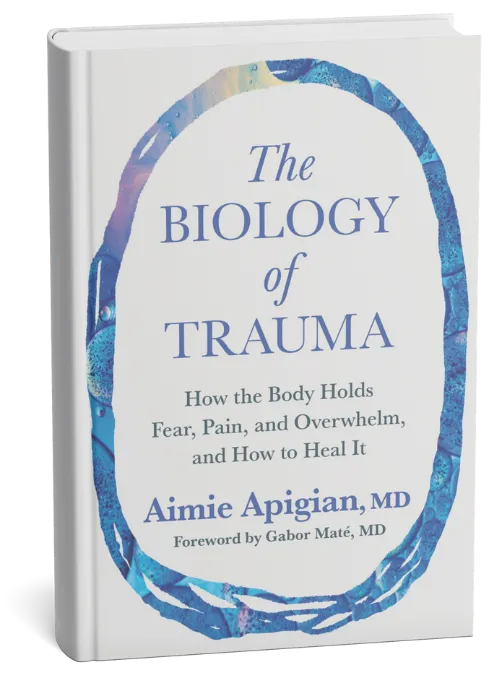
Strategies for Empaths: How to Navigate Sensory Overload, Shame & Trauma

Strategies for Empaths: How to Navigate Sensory Overload, Shame & Trauma
Why are empaths more susceptible to experiencing trauma than most?
Are you a sensitive person? Are you an empath with a more sensitive and perceptive system?
What is happening is that our nervous system is more sensitive, receiving information that others don’t, feeling things that others don’t, which means having an uncontrollable body response to imperceptible changes in the environment.
Like being in a noisy crowd and not able to turn it off, our sensitivity can lead to overwhelm. Which leads to the hard truth, while being sensitive may be a superpower sometimes, it more often than not is overwhelming for our system and causes a trauma response in our body. Pretty soon we can be having emotional meltdowns, or physical health symptoms that are embarrassing or ones that we think are random.
In this episode, I chat with Dr. Judith Orloff to explore the ways in which this can lead to a greater susceptibility to trauma, as well as how to embrace the unique gifts that heightened sensitivity brings. Dr. Orloff is a UCLA trained psychiatrist and has been called “the godmother of the empath movement”. She synthesizes traditional medicine with cutting-edge knowledge of intuition, energy, and spirituality, and believes in the power of integrating this wisdom.
Helpful Links Related To This Episode
Related YouTube Videos:
Understanding the Nervous System: Transforming Trauma and Navigating People-Pleasing Behavior
Guides, Tools, Resources:
The Essential Sequence Guide – for a review of the trauma response and the essential sequence to safely open up stored trauma.
Foundational Journey – if you want to be safely guided through The Essential Sequence, and lay your foundation of regulation in this online 6 week course, join me and my team of mentors for this journey into your inner world with practical somatic and parts self-practices.
Connect with Dr. Judith Orloff:
KEY MOMENTS:
[02:35] This is why highly sensitive people are more prone to trauma
[08:52] How this level of sensitivity can actually be a superpower
[12:23] The different types of overwhelming situations an empath might encounter
[19:00] Practical strategies for empaths on how to set boundaries
[22:02] Are people born as empaths or are there predispositions in their family dynamics
[29:36] Types of physical health symptoms empaths are more vulnerable to
Disclaimer:
By listening to this podcast, you agree not to use this podcast as medical, psychological, or mental health advice to treat any medical or psychological condition in yourself or others. This podcast is for informational and educational purposes only and does not constitute professional advice, diagnosis, or treatment. Always consult your own physician, therapist, psychiatrist, or other qualified health provider regarding any physical or mental health issues you may be experiencing. This entire disclaimer also applies to any guests or contributors to the podcast. Under no circumstances shall Trauma Healing Accelerated, any guests or contributors to The Biology of Trauma® podcast, or any employees, associates, or affiliates of Trauma Healing Accelerated be responsible for damages arising from the use or misuse of the content provided in this podcast.
Comment Etiquette:
I would love to hear your thoughts on this episode! Please share your constructive feedback by using personal name or initials so that we can keep this space spam-free, and let’s keep the discussion positive!
Drop your thoughts below about the episode! I want to hear from you.
Connect with me on social media
Foundational Journey
You. Calm. Alive.
Be safely guided step-by-step through the essential process for addressing stored trauma in your body.
Disclaimer:
By listening to this podcast, you agree not to use this podcast as medical advice to treat any medical condition in either yourself or others. Consult your own physician for any medical issues that you may be having. This entire disclaimer also applies to any guests or contributors to the podcast. Under no circumstances shall Trauma Healing Accelerated, any guests or contributors to The Biology of Trauma podcast, or any employees, associates, or affiliates of Trauma Healing Accelerated be responsible for damages arising from the use of the podcast.

